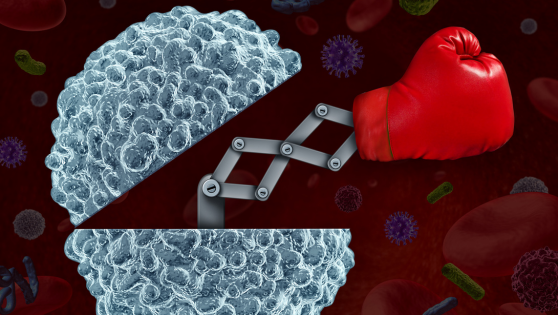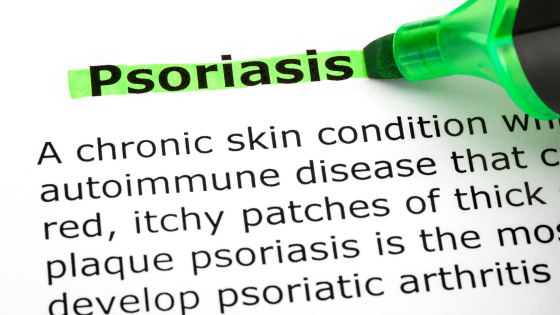Dry skin is a widespread condition experienced by many, often attributed to factors like weather changes, harsh soaps, or simply aging. However, what if this common annoyance is more than just a surface-level issue? Interestingly, dry skin can sometimes signal deeper health concerns, including autoimmune diseases.
In this blog, we delve into the intriguing possibility that dry skin could be an indicator of underlying autoimmune conditions. We’ll explore the connection between skin health and autoimmune diseases, highlight specific disorders where dry skin is a prevalent symptom, and discuss how recognizing these signs early can lead to better management and treatment.
The Connection Between Skin Health and Autoimmune Diseases
The skin is more than just the body’s outer covering; it is an active immune organ that plays a crucial role in protecting against pathogens and managing various immune responses. However, when autoimmune diseases enter the picture, the skin can become a battleground where the immune system mistakenly targets and damages its own tissues.
The Immune System’s Role in Skin Health
The immune system is designed to defend against harmful invaders like bacteria and viruses. In healthy individuals, this system recognizes and destroys foreign agents without harming the body’s own tissues. However, in autoimmune diseases, this system misfires, mistakenly attacking healthy cells. In the skin, this can disrupt normal functions and damage the skin’s protective barrier, leading to symptoms such as dryness, irritation, and visible lesions.
The skin’s involvement in autoimmune diseases is not only a matter of aesthetics but can also serve as a critical indicator of underlying systemic issues. Recognizing these signs early can be key to diagnosing and managing autoimmune conditions effective
How Autoimmune Diseases Affect the Skin
Autoimmune diseases can lead to a variety of skin manifestations, as the immune system may directly attack skin cells or related structures like blood vessels and connective tissue. This attack triggers inflammation, which often results in noticeable symptoms such as rashes, blisters, and dryness. Beyond physical discomfort, these symptoms can also have profound emotional and psychological effects, impacting an individual’s quality of life.
Common autoimmune diseases that might include dry skin as a symptom include:
- Sjögren’s Syndrome: This autoimmune disorder primarily targets the body’s moisture-producing glands, such as those in the mouth and eyes, but it can also affect the skin. Individuals with Sjögren’s often experience chronic dry skin that can feel rough and itchy. The lack of moisture can make the skin more susceptible to rashes and infections. Additionally, Sjögren’s may lead to complications like vaginal dryness and dryness in the respiratory tract, which can further complicate daily living and overall health.
- Systemic Lupus Erythematosus (SLE): Commonly known as lupus, this complex autoimmune disease can manifest in various parts of the body, including the skin. The most iconic symptom is the malar rash, or butterfly rash, which spreads across the cheeks and the bridge of the nose. Besides the butterfly rash, lupus can cause other skin issues such as discoid lesions, which are thick, red, scaly patches that may cause scarring; photosensitivity leading to rashes when the skin is exposed to sunlight; and changes in skin coloration.
- Hashimoto’s Thyroiditis (Hypothyroidism): In this condition, the immune system attacks the thyroid gland, reducing its ability to produce hormones, leading to hypothyroidism. Skin changes due to Hashimoto’s include dry, coarse, and thickened skin, particularly noticeable on the elbows, knees, and heels. The skin may also appear pale or slightly yellowish due to the slowed metabolism affecting the renewal of skin cells and the buildup of carotene.
- Dermatomyositis: This inflammatory disease is marked by muscle weakness and distinctive skin changes. The rash of dermatomyositis typically appears as purplish or dusky red patches, often painful or itchy, located over the knuckles, elbows, knees, chest, and back. The skin may also be puffy and tender, and could develop a scaly appearance over time, resembling a severe sunburn. Dermatomyositis rashes are particularly sensitive to sunlight, which can exacerbate symptoms.
- Psoriasis: This is a well-documented autoimmune skin condition that speeds up the lifecycle of skin cells, causing cells to build up rapidly on the surface of the skin. The extra skin cells form scales and red patches that are itchy and sometimes painful. Psoriasis patches can range from a few spots of dandruff-like scaling to major eruptions that cover large areas. The most common areas affected are the scalp, elbows, knees, and lower back. Patches are typically red and covered with thick, silvery-white scales, and they can also crack and bleed in severe cases.
How Autoimmune Dry Skin Symptoms Differ from Common Dry Skin
While dry skin is a frequent concern that many people experience due to environmental factors, aging, or using harsh skin products, the dryness associated with autoimmune diseases is distinct in several key ways:
Persistence and Severity: Common dry skin typically resolves with increased hydration and the use of moisturizers. However, dry skin resulting from autoimmune conditions is often persistent and does not improve significantly with regular over-the-counter skin care products. It may require systemic treatment or specialized topical therapies prescribed by a healthcare provider.
Associated Symptoms: Unlike ordinary dry skin, autoimmune-related dryness often accompanies other specific symptoms. For instance, the dry skin in Sjögren’s syndrome is accompanied by dryness of other mucous membranes like the eyes, mouth, and nose, which does not occur with common dry skin. In lupus, skin dryness may come with a characteristic butterfly rash and increased photosensitivity.
Underlying Inflammation: Dry skin associated with autoimmune diseases often involves underlying inflammation. This is not the case with common dry skin, which is usually due to external factors like low humidity or dehydration. Autoimmune conditions involve the immune system actively attacking healthy cells, leading to inflammation that exacerbates skin dryness.
Pattern and Distribution: The pattern and distribution of dry skin can also help differentiate autoimmune-related conditions from common dry skin. For example, psoriasis typically appears on the scalp, elbows, knees, and lower back in well-defined patches, whereas common dry skin often occurs more diffusely without a clear pattern.
Response to Treatments: Common dry skin typically responds well to changes in skincare routines, such as using more hydrating cleansers and applying moisturizers regularly. In contrast, dry skin due to autoimmune conditions often requires systemic or advanced topical treatments to manage the immune system’s involvement and control symptoms effectively.
By understanding these differences, individuals can better recognize when their skin symptoms may indicate an underlying autoimmune condition and seek appropriate medical evaluation and treatment. This distinction is crucial for effective management and could potentially lead to earlier diagnosis and improved outcome
Diagnosing Autoimmune Diseases with Skin Symptoms
When skin symptoms suggest the possibility of an autoimmune disease, it’s crucial to consult a healthcare professional who can conduct a thorough evaluation. Understanding what to expect during the diagnostic process and the tests that may be conducted can help prepare patients for their medical consultations.
What to Expect During a Medical Consultation
During the initial consultation, the healthcare provider will likely conduct a comprehensive review of the patient’s medical history and perform a detailed physical examination. Patients should be prepared to discuss the duration, progression, and impact of their skin symptoms. Additionally, they should inform the doctor about any other symptoms they’ve experienced, even if they seem unrelated, as well as any family history of autoimmune diseases.
The consultation may also involve a detailed inspection of the affected skin areas to assess the pattern, extent, and nature of the symptoms. This assessment helps the healthcare provider determine the next steps in the diagnostic process and rule out other potential causes.
Tests That Might Be Conducted
If an autoimmune disease is suspected based on the initial evaluation, several tests may be conducted to confirm the diagnosis:
- Blood Tests: Common blood tests include those looking for specific autoantibodies that target the body’s tissues, inflammatory markers, and other indicators of immune system activity.
- Skin Biopsy: This involves removing a small sample of skin tissue for examination under a microscope. A skin biopsy can help identify changes in skin tissue that are characteristic of certain autoimmune diseases.
- Imaging Tests: In some cases, imaging tests such as X-rays, ultrasound, or MRI might be used to look for organ involvement and to assess the extent of disease progression, particularly if the autoimmune disease affects deeper tissues or organs.
- Additional Specialist Consultations: Depending on the symptoms and the suspected autoimmune disease, referrals to specialists such as dermatologists, rheumatologists, or endocrinologists may be necessary for further evaluation and testing.
The Importance of Early Diagnosis
Early diagnosis of autoimmune diseases is crucial for several reasons. It allows for the initiation of appropriate treatment before significant damage occurs to the affected organs and tissues. Early treatment can significantly improve the prognosis by reducing the severity of the symptoms, slowing disease progression, and minimizing complications. Moreover, understanding the specific type of autoimmune disease can help tailor the treatment plan to the individual’s needs, enhancing the efficacy of the interventions.
Prompt and accurate diagnosis is therefore essential to managing autoimmune diseases effectively and improving the quality of life for those affected. Patients experiencing persistent or unusual skin symptoms should seek medical advice to ensure timely and effective care.
Managing Dry Skin Associated with Autoimmune Diseases
Dealing with dry skin can be challenging, especially when it is linked to an autoimmune disease. Effective management involves a combination of general skincare practices, specific treatments, and lifestyle adjustments tailored to alleviate symptoms and improve overall skin health.
General Skincare Tips for Managing Dry Skin:
- Moisturize Regularly: Apply thick, emollient moisturizers immediately after bathing to lock in moisture. Look for products that are fragrance-free and formulated for sensitive skin to avoid irritation.
- Gentle Cleansing: Use mild, soap-free cleansers that do not strip natural oils from the skin. Avoid hot water, which can exacerbate dryness, and opt for lukewarm showers and baths.
- Humidify: Using a humidifier in your home can help add moisture to the air, particularly during dry, cold months, which can prevent your skin from becoming too dry.
- Protect Your Skin: Wear protective clothing and sunscreen when outdoors to shield your skin from harmful UV rays and harsh environmental conditions, which can worsen dry skin.
Specific Treatments and Lifestyle Changes for Autoimmune-Related Skin Issues:
- Topical Treatments: Depending on the specific autoimmune condition, topical corticosteroids or calcineurin inhibitors may be prescribed to reduce inflammation and control flare-ups.
- Systemic Medications: For more severe cases, doctors may prescribe systemic treatments such as immunosuppressants or biologic drugs that target specific parts of the immune system to reduce overall inflammation and autoimmune activity.
- Diet and Hydration: Increasing water intake can help hydrate the skin from the inside out. Additionally, some may find it beneficial to follow an anti-inflammatory diet rich in omega-3 fatty acids, antioxidants, and vitamins that promote skin health.
- Stress Management: Stress can exacerbate autoimmune symptoms, including skin issues. Engaging in stress-reduction activities such as yoga, meditation, or deep breathing exercises can help manage stress levels and potentially improve skin condition.
When to Seek Help from a Healthcare Professional:
- Persistent Symptoms: If dry skin persists despite regular use of moisturizers and other home care measures, it may be a sign that your current treatment plan needs adjustment.
- Worsening Condition: If you notice increased redness, itching, or a spread of dry patches, or if your skin becomes painful, these could be signs of an infection or worsening underlying disease.
- Systemic Symptoms: If you experience new or worsening systemic symptoms such as fatigue, joint pain, or muscle weakness alongside skin changes, it’s important to consult a healthcare provider.
Seeking help from a healthcare professional is crucial to managing dry skin associated with autoimmune diseases effectively. They can provide a diagnosis, offer advanced treatments, and tailor a management plan to reduce symptoms and improve quality of life.
Conclusion
Dry skin is a common issue that many of us might dismiss as a minor irritation. However, when it is persistent and accompanied by other symptoms, it can be a sign of underlying autoimmune diseases. Conditions such as Sjögren’s Syndrome, lupus, and Hashimoto’s thyroiditis can manifest skin-related symptoms, emphasizing the complex interplay between our skin health and immune system.
If you are experiencing chronic dry skin that does not respond to regular moisturizing and skincare routines, it’s important to consider a deeper cause. Autoimmune diseases can present through various skin changes, and recognizing these signs early can be crucial for timely diagnosis and treatment.
I encourage anyone with persistent skin issues, especially if accompanied by other symptoms like fatigue, joint pain, or muscle weakness, to consult with healthcare providers. Awareness and understanding of these signs are essential, not only for those who may be directly affected but also for family and friends who can support their loved ones by encouraging them to seek professional advice.
By staying informed about the potential implications of persistent dry skin and other related symptoms, we can better advocate for our health and ensure that proper care is sought promptly, leading to better management and outcomes in autoimmune diseases.
Call to Action
Have you ever struggled with persistent dry skin or other unusual skin symptoms? We would love to hear about your experiences. Sharing your story can help others feel less alone in their journey and may provide valuable insights into how autoimmune diseases can manifest differently in each person.
If you’re looking for more information or suspect that your skin issues might be linked to an autoimmune condition, don’t hesitate to reach out to healthcare professionals. Early diagnosis and treatment can make a significant difference in managing these complex conditions.
For further reading and resources on autoimmune diseases and skin health, consider visiting the following sites:
- American Autoimmune Related Diseases Association (AARDA)
- National Institute of Arthritis and Musculoskeletal and Skin Diseases (NIAMS)
- The National Psoriasis Foundation
These resources can provide you with comprehensive information and support networks to help you navigate the challenges of autoimmune diseases.
Together, let’s increase awareness and support each other in understanding and managing these conditions more effectively. Share this post with friends and family to spread the word and help others who might be affected.
If you are looking for more tips and support, join me over on my group page, The Village – A Natural HEALing Community, to get tons of information and tips to help you take your HEALTHY EATING and ACTIVE LIVING to the next level.
REFERENCES:
- “Autoimmune Diseases,” American Autoimmune Related Diseases Association (AARDA). Accessed 2024. https://www.aarda.org/autoimmune-information/autoimmune-diseases/.
- “Skin Complications,” National Institute of Diabetes and Digestive and Kidney Diseases (NIDDK). Accessed 2024. https://www.niddk.nih.gov/health-information/diabetes/overview/preventing-problems/skin-complications.
- “What Are Autoimmune Diseases?” National Institute of Arthritis and Musculoskeletal and Skin Diseases (NIAMS). Accessed 2024. https://www.niams.nih.gov/health-topics/autoimmune-diseases.
- “Understanding Psoriasis,” The National Psoriasis Foundation. Accessed 2024. https://www.psoriasis.org/about-psoriasis/.
- “Sjögren’s Syndrome,” Mayo Clinic. Last modified 2024. https://www.mayoclinic.org/diseases-conditions/sjogrens-syndrome/symptoms-causes/syc-20353216.
- “Lupus and Your Skin,” Lupus Foundation of America. Accessed 2024. https://www.lupus.org/resources/lupus-and-your-skin.
MORE RELATED POSTS:








+leave a comment . . .